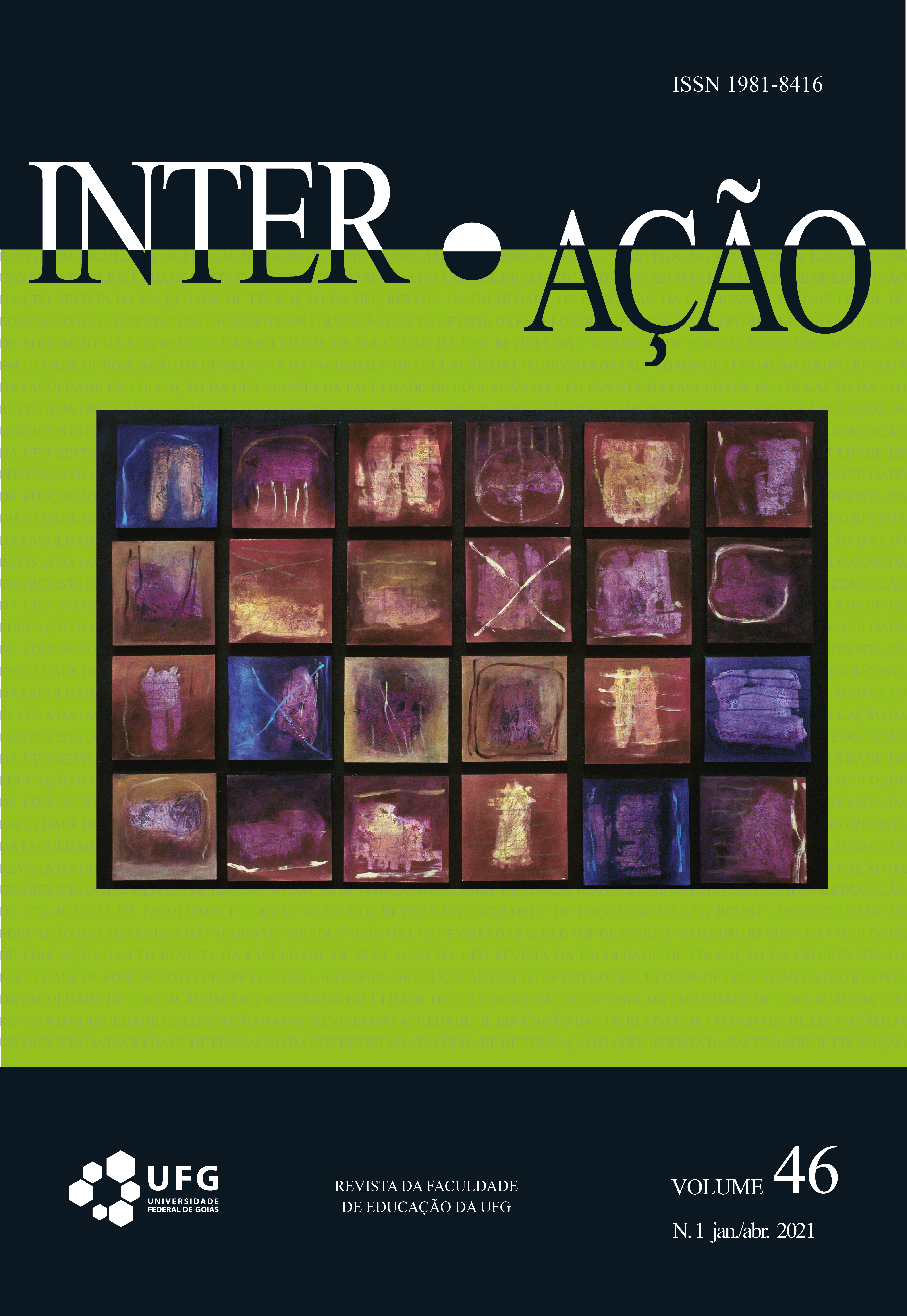COMO É SER DOCENTE NO CENÁRIO EDUCACIONAL EM 2019? A NARRATIVA COMO INSTRUMENTO DO TRABALHO DOCENTE
DOI:
https://doi.org/10.5216/ia.v46i1.65092Abstract
Este artigo objetiva compreender narrativas produzidas por duas docentes sobre sua profissão em Alegrete/Rio Grande do Sul (RS). O estudo, caracterizado como de abordagem qualitativa, utiliza a narrativa enquanto ferramenta de pesquisa em Educação. As narrativas estão baseadas no resgate de vivências e experiências das colaboradoras do estudo, como estratégia de valorização do trabalho docente a partir do reconhecimento das memórias. Em nossas considerações concluintes e re-iniciantes evidenciamos que as narrativas não se limitam à crítica do trabalho desenvolvido pelas entrevistadas. Ao contrário, pressupõem um olhar de compreensão perante a caminhada de cada sujeito no campo educacional, com o intuito de conhecer a realidade docente a partir do ponto de vista de quem se encontra lá.
Downloads
Published
Versions
- 2026-01-06 (2)
- 2021-04-17 (1)
How to Cite
Issue
Section
License
Copyright (c) 2021 Ivana Almeida Serpa, Fani Averbuh Tesseler

This work is licensed under a Creative Commons Attribution-NonCommercial 4.0 International License.
Inter-Ação uses the Creative Commons Attribution 4.0 License for Open Access Journals (Open Archives Initiative - OAI) as the basis for the transfer of rights. Open access means making documents available on the Internet free of charge, so that users can read, download, copy, distribute, print, search, or link to the full text of documents, process them for indexing, use them as input data for software programs, or use them for any other lawful purpose, without financial, legal, or technical barriers.
Authors publishing in this journal agree to the following conditions:
1) Authors retain copyright and grant the journal the right of first publication, with the work simultaneously licensed under the Creative Commons Attribution License, which permits redistribution of the work with attribution and first publication in this journal.
2) Authors are permitted to enter into additional, separate agreements for non-exclusive distribution of the version of the work published in this journal (e.g., for publication in an institutional repository or as a book chapter), with attribution and first publication in this journal.
3) Authors are permitted and encouraged to publish and distribute their work online (e.g. in institutional repositories or on their home page) at any time before or during the editorial process, as this may generate productive changes as well as increase the impact and citation of the published work.















